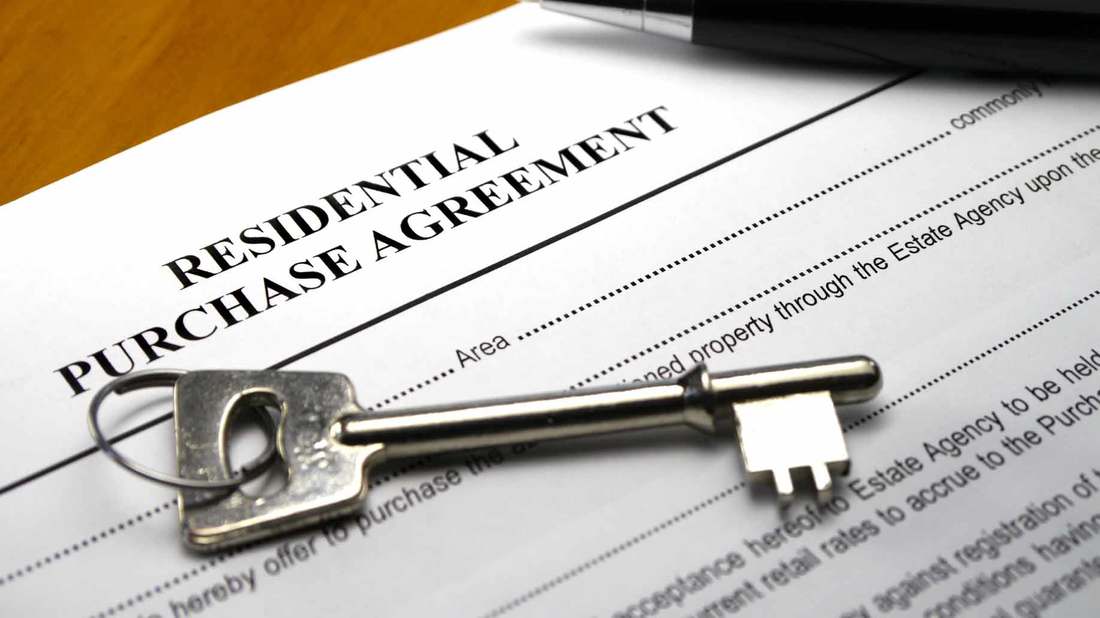When you've got to buy a house from across the country, start with a winning strategySearching for a house locally is not without its difficulties. Add hundreds or even thousands of miles to the equation, and it becomes infinitely more complicated. Though long-distance house hunting has its unique challenges, it’s not impossible. In fact, with the right agent and the convenience of modern technology, it’s never been easier to buy a house remotely. Here are a few critical factors to keep in mind when you find yourself in a home search from afar. Do your homework When it comes to long-distance home shopping, “the Internet is your friend,” remarks Meghann Shike of Synergy Realty in Nashville. “You know the neighborhoods you live around, but you know nothing about your new one. You don’t know where the mall is, the [grocery store], or the schools.” Though nothing can substitute checking out the neighborhood in person, Shike recommends looking up commute times to work, crime rates in the area, and, most importantly, how the schools rank. Even if you don’t have children or don’t plan to have children, it’s still good to know the quality of the schools for resale purposes. One of the biggest pieces of the long-distance house-hunting puzzle, however, is to make sure you’re researching who the best local real estate agents are. It’s always crucial to hire an agent you trust, but with a long-distance search the agent can make or break the experience. “You’re going to want someone local on the ground — someone who is very familiar with the city, neighborhood, and prices,” Shike says. “You need to get a feel for how that person operates. Are they available to talk to you? You’re going to have more questions than you realize, and your agent is going to need to be there to answer them.” Have a travel budget When Kyle and Samantha Steele found out they were going to be moving from Oklahoma City to Columbus, OH for Kyle’s new job, the couple looked at listings online, got in touch with real estate agents, and picked an upcoming weekend to house hunt in person. The Steeles’ agent showed them multiple houses, but nothing was quite right. Then they found out that many of the older neighborhoods in the area didn’t have great access to high-speed Internet. That’s when they decided to build. Their agent was instrumental in guiding them on their short house-hunting weekend, and in finding a builder. “[Our agent] basically helped us with everything, every step of the way,” Kyle states. “When we couldn’t find anything, she helped us find model homes in the area we’re building in, and showed us three different model homes. She answered questions, and helped us find the building company. She even helped us find a hotel for the weekend.” Inevitably, unexpected appointments came up during the building process that required one of the Steeles to be present. “We had to make an appointment to meet with the design studio to pick out the floors and the carpet,” Samantha remarks. “So far, I’ve been to Ohio twice.” The couple advises long-distance house hunters to prepare and plan ahead, especially for last-minute travel. “Be flexible,” Kyle says. “Make sure you have a few thousand dollars in reserve that you can spend on plane tickets and a hotel — because you will have to go back and forth.” From the agent perspective, Shike recommends planning a house-hunting trip that’s at least four to five days long, so you’re not cramming in tons of showings that you won’t remember at the end of the day. Know what you want When you’re in the market for a home, you should always have a running list of features you want, but it’s especially crucial when you’re buying from a distance. “I like to tell my clients to do a ‘top five.'” Shike says. “What’s your non-negotiable? Is it being able to step out the front door to walk your dogs? Do you want to walk your kids to school?” Knowing exactly what you want out of a house and location allows your agent to help you narrow down neighborhoods and homes more easily, and assist you in making an offer quickly, which is especially important in a fast-moving market. “Buyers need to get over the fear of writing an offer when they haven’t seen the house in person,” remarks Shike. “I can video chat our way through the house, but I can’t get you on a plane [to get here] in the same time the local people can who are shopping.” Overcome remote home-buyer jitters For those buyers who are nervous about making an offer sight unseen, Shike says there is the possibility of adding a clause in the contract that the sale is contingent on the buyer seeing it. Of course, there is also always the option of renting first before you take the plunge. “You could rent for the short term or get a six-month lease, which is enough time to get settled in your job or routine,” recommends Shike. “That can be nice for buyers who are a little more anxious about the process — to relieve that anxiety.” Overall, buying a house from a distance shouldn’t necessarily be looked at as a negative experience. In fact, Shike believes it can give many shoppers new opportunities, and buyers are often more excited when purchasing long distance. “It can be a nice change of pace for people,” Shike adds. “Another benefit to moving long distance is a fresh start: a new neighborhood, new culture, new people, and new experiences everywhere.” On Point Homevestments
0 Comments
Home buying hurdles exist — but research, creativity and flexibility will help you clear them.Home buyers today face tough challenges — housing prices have soared, a dollar doesn’t go as far as it once did and rent is more expensive than the past. How are people today making such a large purchase despite these hurdles? With more flexibility and a bit of financing creativity, today’s buyers are finding ways to achieve homeownership. Know your options (and credit score) To even begin the home buying process, it’s important to know what resources are available. According to a 2017 Fannie Mae working paper, many Americans don’t have a strong, or even basic, understanding of what it takes financially to buy a home, nor if they meet the criteria. The first step to knowing if you can afford a home is figuring out what financing options are available to you, including what mortgages you’re eligible for and how much you need/can afford to put down upfront. Fannie Mae discovered that most buyers don’t know the minimum FICO score required by lenders and that 49 percent of buyers don’t even know what their credit score is. Home shoppers also aren’t sure how much they have to put down on a home, and about 40 percent are unsure of the lender-required minimum down payment. Plus, three-quarters of buyers don’t know about programs available to help with down payments, like FHA loans. Before buyers even start thinking about saving for a home, they should know what their financial resources are and if they’re eligible to buy. Make enough money to save With fewer resources to pull from than their older, wealthier counterparts, renters wanting to buy face tough financial headwinds. According to the Consumer Housing Trends Report 2017, renter households typically earn a median income of $37,500 annually, which is $50,000 less than the median household income netted by households who recently bought a home (of whom the median household income is $87,500 annually). While there are ways to enter into homeownership without making $87,500 in household income, it’s hard to afford to buy if you make significantly less. “If you’re making $37,500 per year, it’s probably not feasible for you to buy in almost any market,” says Chief Economist Dr. Svenja Gudell. Only 29 percent of Americans make $87,500 or more, per U.S. Census Bureau data. For perspective, only one of the top 10 most common jobs in the United States carries a salary above $37,500, meaning the jobs that the majority of Americans hold bring in less money than the median renter household. While households purchasing homes are more likely to have two incomes than renter households (and thus a higher median household income combined), even two-income households struggle to afford to buy in competitive markets. Save enough cash (but not as much as you think) One of the most daunting parts of home buying? The down payment. In fact, two-thirds of renters cite saving for a down payment as the biggest hurdle to buying a home, according to the Housing Aspirations Report. Per findings from the Consumer Housing Trends Report 2017, almost one-third (29 percent) of buyers active in the market express difficulty saving for the down payment. For people buying the national median home valued at $201,900, with the traditional 20 percent down payment, that’s $40,380 upfront — just to move in. “The down payment remains a hurdle for a lot of people,” says Gudell. “But they should know they don’t have to put 20 percent down.” Although putting down less than 20 percent means additional considerations, such as the cost for private mortgage insurance (PMI), some find it worth the hassle. In fact, only one-quarter of buyers (24 percent) put 20 percent down, and just over half of buyers (55 percent) put less than the traditional 20 percent down. Buyers are also getting creative about piecing together a down payment from multiple sources. According to the report findings, nearly 1 in 4 buyers (24 percent) build a down payment from two or more sources, including saving, gifts, loans, the sale of a previous home, stocks, retirement funds and other resources. Know your deal breakers, but be flexible To get into a home — even if it’s not the home of their dreams — some of today’s buyers are considering homes and locations outside of their initial wish list and getting increasingly flexible when it comes to neighborhood, house condition and even home type. Although single-family homes remain a dream for most home seekers, buyers today consider and buy condos and townhouses to secure a home in their ideal location. Buyers with household incomes under $50,000 are more likely to consider homes outside of the traditional single-family residence (40 percent), compared to those with incomes of $50,000 or above (24 percent). “I do think people get discouraged when they look in their target neighborhood and they see homes around $170,000 when they’re looking for a $110,000 home,” Gudell says. Affordably priced homes do, in fact, exist. But in popular areas, where people most often want to live, it’s going to be harder to find that cheaper home, Gudell says. “If you’re willing to take a longer commute and make a couple trade-offs, you might be able to find a home that is farther out that might be cheaper,” Gudell explains. “You have to leave the paved path before you can find cheaper choices.” On Point HomevestmentsReal estate agents often suggest that sellers either accept the first offer or at least give it serious consideration.Real estate agents around the world generally go by the same mantra when discussing the first offer that a seller receives on their home: “The first offer is always your best offer.” Of course, this isn’t true in every situation, but there are reasons why agents believe this, and why they often suggest that sellers either accept the first offer or at least give it serious consideration. Get in the buyer’s head To understand why the first offer is usually the one you should accept, consider the buyer and the journey he or she’s on. Buyers in the real estate market usually start by dipping their feet into the water. This may be before they even engage a real estate agent. They generally go to a few open houses, check out prices online, and start to do their homework. They may even make first contact with an agent to assess what the agent thinks about the state of the local market. From there, buyers begin to get more serious. They may start going on private, second or third showings with their agent. They really start to get engaged in the process. They become “the real dealer” — a buyer who is completely in the game, approved for a mortgage, and actively engaged with their mortgage lender or broker. Maybe they’ve even written an offer or two. They’ve narrowed down their search parameters, spent months learning the market, pricing and checking the comparables. (To learn more about the three types of homebuyers, read “Seller’s Guide to Understanding Today’s Buyer.”) Real dealers are often the ones who write the first offer a seller receives on a property. And that’s why their offers should be taken seriously. Real dealers will likely get an email notification about your listing within hours of it going online. Or, since they are so engaged with their agent at this point, the agent may spot it first and send them a text or email. This buyer will want to get in and see the property ASAP. Since they’re so familiar with the market, they’ll be able to tell once they step foot inside if it will work for them, if it’s priced right, if it shows well, and if it’s in line with present or past comparable sales. If the property meets their criteria, the real dealer, armed with all their knowledge and motivation, will make an offer. The real dealer Their offer may not come in within days of a property going on the market. But it will come from an informed buyer who is knowledgeable of the market. If a home is priced too high and a month or two goes by without an offer, it will be the real deal buyer who has been watching the listing and waiting to see how the market responds. If they note that there aren’t any offers on it and there is no activity after some time, the real dealer will come in with a low offer, which actually may be a good offer, on the seller’s home. While you may see it as an insulting “low ball” offer coming out of left field, you should still look closely at this offer. Who is the buyer? How long have they been looking? Have they written other offers nearby? Are they working with a good local agent? Does the offer come with a pre-approval letter? Is this offer actually a number that is close to the number your real estate agent initially suggested? As hard as it may seem to contemplate an offer much lower than your asking price, serious sellers should look at all the signs leading up to it and consider if this is the offer to accept. Trust your agent. And even better, trust the phrase, “The first offer is always your best offer.” On Point HomevestmentsA lot can happen between an initial offer and closing day. Meet the counteroffer ...Buying a home is rarely as simple as making an offer and paying that offer out. Negotiations can go back and forth for weeks before the seller and buyer are both satisfied. The vehicle for this negotiation is the counteroffer — a vital and complex rejection and counter to an offer made by either party. Counteroffers are typically handled between real estate agents and are time sensitive. Selling or buying a home is more of a process than a transaction, so it’s important to understand counteroffers before you make your first offer. Why was I countered? As a home buyer, if you make an offer below list price, the seller may choose to reject, accept or simply let the offer expire. If there are multiple offers, the listing agent will lay out the options for their client and then notify all buyers’ agents of the choices. Sellers may also counter your proposed closing date. If they need to move out quickly, they may want to push it earlier. They may also ask to rent the property for a time after the settlement. Price and closing date negotiations are common from both parties, but there are even more reasons sellers can potentially get countered. The condition of the home is likely the biggest factor here. As home buyers conduct ongoing research into the home, any problems with the condition of the house can result in a counteroffer. If you’ve chosen to take appliances with you when you move, buyers may also look to negotiate for those. Appraisals are another reason for counteroffers. If an appraisal comes in below the agreed-upon sale price, it will affect the amount the mortgage company will lend to the buyer. Negotiation power When reviewing a counteroffer, it’s important to have an experienced real estate agent who can capitalize on your advantages in a negotiation. Both sellers and buyers can take steps to put themselves in an advantageous position through planning and smart counteroffers. Knowledge is power in negotiations, so try to glean as much information about the seller or buyer as you can. Your agent will also seek information from the other agent on your behalf. Sometimes sellers use the pending sale of their home to finance another, meaning they have a truncated timeline and could be more eager to make a deal. Similarly, buyers who have terminated a lease may be desperate for a place to live and more willing to negotiate. If you’re selling a home with known issues, anticipate how these problems may put you at a disadvantage during negotiations. A leaky roof may not be discovered until after buyers order a home inspection. Depending on the cost, they may ask the seller to either fix the roof or deduct the cost of a new roof from the sale price. These types of issues put sellers at a distinct disadvantage because they have to either pay for repairs, lower the selling price, or reject the counteroffer and hope the next buyer doesn’t notice or care about repairs. This is why it’s worth the money (around $500) to pay for an inspection before listing a house. Preparation can save you headaches and money down the road. Responding to a counteroffer If you’ve received a counteroffer as a buyer or a seller, carefully review every aspect. Real estate agents, apart from yours, are under no obligation to ensure you read the full contract. So make sure you read everything carefully before you sign. With each individual counteroffer, consider every aspect of the sale, including old and new information. If you made an offer above the list price, there is always the possibility for an appraisal to come in low. If you are responding to a counteroffer before an appraisal or inspection, keep those at the forefront of your mind. Prepare yourself for future counteroffers once they are completed. Whether you’re selling or buying a home, establish a baseline for when you will walk away from a sale. As a buyer, you don’t want to spend so much on a home that you move in with no cash for improvements and repairs. And as a seller, you should know how much you want to make off the sale. With a measured and informed approach, counteroffers can be your friend. Communicate often with your agent to let them know what you want from the sale, and never be afraid to walk away if things go south. On Point Homevestments |
Details
Archives
February 2019
Categories
All
|
Company |
Services |
|
Possibilities









 RSS Feed
RSS Feed